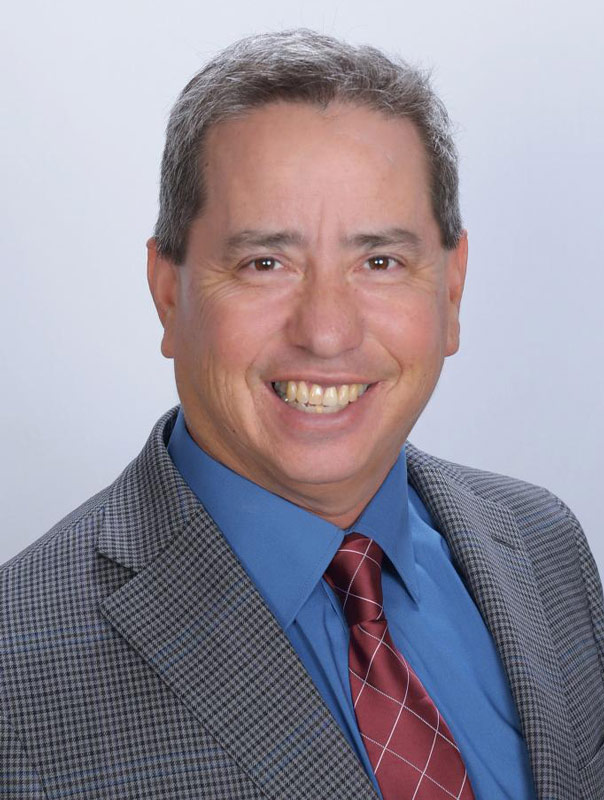Johnson, Michael Kotutwa

Michael Kotutwa Johnson
Dr. Michael Kotutwa Johnson is a member of the Hopi Tribe. Dr. Johnson is a faculty and Assistance Specialist-Indigenous Resiliency Center at the School of Natural Resources and the Environment at the University of Arizona. His primary work is with the Indigenous Resiliency Center. Dr. Johnson also co-authors the Indigenous Chapter in the National Climate Assessment Five. Dr. Johnson’s current work calls for the following Indigenous conservation and stewardship principles to restore the American Indian food system. Crucially, Dr. Johnson continues to practice Hopi dry farming, a practice the Hopi people have used for millennia.
Johnson, M.K., Rowe, M. , Lien, A.M.& Hoffman-Lopez, L. 2021. Enhancing Integration of Indigenous Agricultural Knowledge into National Resource Conservation Service Cost-Share Initiatives. Journal of Soil and Water Conservation. Online. https://www.jswconline.org/content/early/2021/07/23/jswc.2021.00179
Jäger, M. B., Ferguson, D., Huntington, O., Johnson, M., Johnson, N., Juan, A., Larson, S., Pulsifer, P., Reader, T., Strawhacker, C., Walker, A., Whiting, D., Wilson, J., Yazzie, J., & Carroll, S. 2019. Building an Indigenous Foods Knowledges Network Through Relational Accountability. Journal of Agriculture, Food Systems, and Community Development, 1–7. https://doi.org/10.5304/jafscd.2019.09B.005 2018
Johnson, M. K., Lien, A. M., Sherman, N. R., & López-Hoffman, L. 2018. Barriers to PES programs in Indigenous communities: A lesson in land tenure insecurity from the Hopi Indian reservation. Ecosystem Services, 32, 62–69. https://doi.org/10.1016/j.ecoser.2018.05.009 2015
Singletary, L., Emm, S., Loma’omvaya, M., Clark, J., Livingstone, M., Johnson, M.K., & Oden, R. Hopi People of the Land: Sustainable Agriculture on the Hopi Reservation, University of Nevada Cooperative Extension. https://www.unce.unr.edu/publications/files/ag/2014/cm1402.pdf
Michael Kotutwa Johnson is the second of three children. Dr. Johnson was born to Caleb and Nancy Johnson in 1967. He grew up on a Hopi reservation. His mother was a schoolteacher, and his father was a military colonel. Growing up on a reservation, Dr. Johnson witnessed coal companies extracting the mineral using scarce drinking water to mine and process the coal. His interest in natural resource policy and Native Americans influenced him to explore a career in the environmental field. Dr. Johnson attended Cornell University, earning a bachelor’s degree in agriculture. He later attended Pepperdine University, earning a master’s degree in Public Policy in 2003. In 2019, he earned his doctorate in natural resources from the University of Arizona.
Dr. Johnson’s first job was working for a Native American non-profit organization researching charitable giving and Indian agriculture. After leaving the non-profit, Dr. Johnson worked for the Deputy Undersecretary in Washington, D.C., assisting with tribal colleges and Indian agricultural issues.
His first environmental job was with a government agency assisting ranchers and farmers in enhancing their conservation practices in rangeland management, erosion control, and watershed management. Dr. Johnson remained with the same agency and worked as a District Conservation Officer until 2005.
As a District Conservationist, he was responsible for administering 1.5 million acres of federal trust land and ensuring that the agency effectively communicated while delivering conservation programs that preserve the land.
His most significant achievement was obtaining $500,000 from the Hopi Tribe to develop a conservation program. Additionally, Dr. Johnson is a member of the American Indian Science and Engineering Society (AISES) and the American Indian Employment Association (AIEA).
Dr. Johnson started as a research associate at the University of Arizona in 2016. He later ascended to Program Officer for the Native American Agriculture Fund. Since 2022, Dr. Johnson has worked at the University of Arizona. He is a faculty member in the School of Natural Resources and the Environment. His primary job is as Assistance Specialist at the Indigenous Resiliency Center.
In addition to his roles at the University of Arizona, Dr. Johnson advises the Indigenous Seek Keepers Network on developing policy recommendations for Indigenous seeds housed in the USDA’s Germplasm Resource Information Network (GRIN). He meets with the White House Office and Technology Policy on incorporating Indigenous Traditional Ecological Knowledge into Federal Agencies.
Dr. Johnson is also an editorial board member for the Journal of Agriculture, Food Systems, and Community Development and a Tribal Advisor to the National Association of Conservation Districts.
The highlight of Dr. Johnson’s career as a conservationist was overseeing the installation of a watering facility at a Native American village. The project – which took about 18 months to complete – was constructed rapidly. The lowest point of his career was recognizing that the federal government has minority job programs but doesn’t help minorities gain the requisite skills to take advantage of those opportunities. He has remained in the environmental field because he respects the environment.
In his previous role as a district conservation officer, Dr. Johnson was mentored by Dr. Jim Butler, the Deputy Undersecretary in Washington, D.C., who guided him in pursuing his interests in agriculture.
Dr. Johnson enjoys working with American Indian tribes on natural resource policy or management issues. He advises minorities considering a career in the environmental field to find a good mentor who can guide them through various challenges that minorities face in environmental careers.
“As young people going in the field, never feel like your opinion does not matter; you are here because you choose to be, and your impact will be felt over time. It’s my sincere hope you take on issues in [a] collaborative fashion to reach more people and build a stronger coalition” (2005).
Johnson, Michael. n.d. Home [https://www.linkedin.com/in/michael-kotutwa-johnson-phd-mpp-16542049/. LinkedIn. Retrieved June 15, 2023 from https://www.linkedin.com/in/michael-kotutwa-johnson-phd-mpp-16542049/.
Taylor, Dorceta (Ed.). 2005. The Paths We Thread: Profiles of the Careers of Minority Environmental Professionals. Minority Environmental Leadership Development Initiative, University of Michigan School of Natural Resources and Environment.
The University of Arizona. n.d. Michael Kotutwa Johnson. Retrieved June 15, 2023 from https://naair.arizona.edu/person/michael-kotutwa-johnson.